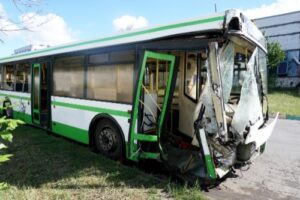Accidents involving buses can be devastating, often resulting in serious injuries and significant property damage. In Florida, the bustling urban environment and heavy traffic make bus accidents unfortunately common. Understanding the common causes of these accidents and taking proactive measures to avoid them can significantly reduce the risk of being involved in such a traumatic event.
Driver Fatigue
One of the leading causes of bus accidents in Florida is driver fatigue. Bus drivers often work long hours, sometimes without adequate rest breaks, which can lead to drowsiness and impaired driving. Fatigued drivers are more likely to make mistakes, such as failing to notice traffic signals or other vehicles, increasing the risk of accidents. To prevent accidents caused by driver fatigue, bus companies should implement strict scheduling policies that ensure drivers get enough rest between shifts.
Distracted Driving
In today’s digital age, distracted driving has become a significant concern for all motorists, including bus drivers. Distractions such as texting, talking on the phone, or adjusting GPS devices can take a driver’s attention away from the road, increasing the likelihood of accidents. Bus companies should enforce strict policies prohibiting the use of electronic devices while driving and provide training to help drivers stay focused on the task at hand.
Poor Maintenance
Failure to properly maintain buses can also contribute to accidents in Florida. Worn-out tires, faulty brakes, and other mechanical issues can make it difficult for drivers to control their vehicles, especially in adverse weather conditions. Bus companies should adhere to regular maintenance schedules and promptly address any issues that arise to ensure the safety of their passengers and other road users.
Weather Conditions
Florida’s unpredictable weather, including heavy rain and thunderstorms, can create hazardous driving conditions for bus operators. Reduced visibility and slippery roads increase the risk of accidents, particularly if drivers fail to adjust their driving behavior accordingly. Bus companies should provide drivers with appropriate training on how to safely navigate adverse weather conditions and encourage them to exercise caution when driving in inclement weather.
Reckless Driving
Reckless driving, including speeding, tailgating, and ignoring traffic signals, is a significant contributing factor to bus accidents in Florida. Aggressive driving behavior puts everyone on the road at risk and can have serious consequences. Bus companies should conduct regular safety training sessions to remind drivers of the importance of obeying traffic laws and practicing defensive driving techniques to prevent accidents.
Inexperienced Drivers
Hiring inexperienced or poorly trained drivers can also increase the likelihood of bus accidents in Florida. Drivers who lack the necessary skills and experience may struggle to handle difficult situations on the road, leading to accidents. Bus companies should thoroughly vet potential hires and provide comprehensive training programs to ensure that all drivers are adequately prepared to safely operate their vehicles.
Poor Road Conditions
The condition of the roads in Florida can also contribute to bus accidents. Potholes, uneven surfaces, and inadequate signage can make it challenging for drivers to maintain control of their vehicles, increasing the risk of collisions. While bus companies may not have direct control over road maintenance, they can report hazardous conditions to the appropriate authorities and work to mitigate the risks associated with poor road conditions.
Passenger Behavior
The behavior of passengers can also contribute to bus accidents in Florida. Rowdy or unruly passengers can distract the driver and create a chaotic environment on board, increasing the risk of accidents. Bus operators should have clear policies in place for managing passenger behavior and should intervene promptly if any disruptions occur.
Blind Spots
Large buses have significant blind spots that can obscure the driver’s view of surrounding vehicles and pedestrians. Failure to check blind spots before changing lanes or making turns can result in collisions. Bus drivers should be trained to be aware of their vehicle’s blind spots and use caution when maneuvering in traffic.
Intersection Collisions
Intersections are common sites for bus accidents in Florida, particularly when drivers fail to yield the right of way or misjudge the timing of traffic signals. Bus operators should approach intersections with caution, reduce speed, and always be prepared to stop if necessary. Additionally, pedestrians should exercise caution when crossing the street near bus stops and intersections.
Improper Loading and Unloading
Improper loading and unloading of passengers can also lead to accidents, especially if drivers fail to wait for passengers to safely board or disembark from the bus. Bus companies should provide training to drivers on proper loading and unloading procedures and enforce policies to ensure that passengers remain safe at all times.
Bus accidents in Florida, can have serious consequences for everyone involved. By understanding the common causes of these accidents and taking proactive measures to address them, bus companies can help ensure the safety of their passengers and other road users. Strict adherence to safety protocols, regular maintenance of vehicles, and comprehensive driver training programs are essential for preventing accidents and minimizing the risk of injury or loss of life on the road.
If you or a loved one has been injured in a bus accident in Florida, don’t hesitate to seek legal assistance. The Guzman Firm, PLLC, is here to help you navigate the complexities of personal injury law and pursue the compensation you deserve. Contact us today for a free consultation.
